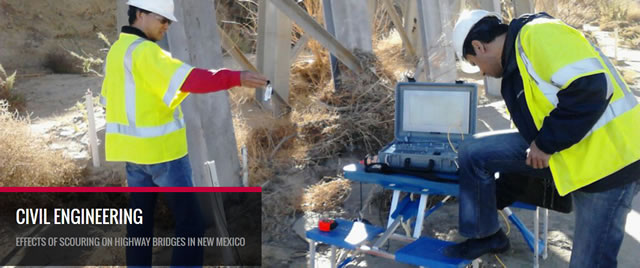
Civil Engineering ETDs
Publication Date
Summer 7-30-2024
Abstract
This study focuses on developing a deformation rate-dependent bilinear constitutive equation for cohesive zone modeling of asphalt concrete's fracture process zone to accurately predict the longitudinal top-down crack initiation and propagation. A mathematical model has been developed for the AC materials' deformation rate-dependent cohesive zone fracture characteristics and incorporated into the ABAQUS software as a customized user element subroutine (UEL). The developed model has been validated by comparing the simulation results with the laboratory test results, which show good agreement with the results. In addition, an enhanced asphalt mix design approach, referred to as SP5, has been developed to mitigate the top-down cracking issues of asphalt pavement by modifying the traditional Superpave method of asphalt mix design (SP4). The laboratory cracking performance test results on the designed SP4 and SP5 mix demonstrated a significant improvement in fracture energy for the SP5 mix compared to the SP4 mix.
Keywords
Top-down Crack, Fracture Process Zone, UEL, Cohesive Zone Model, Mathematical Model, Deformation Rate-Dependent, Enhanced Superpave Mix
Document Type
Dissertation
Language
English
Degree Name
Civil Engineering
Level of Degree
Doctoral
Department Name
Civil Engineering
First Committee Member (Chair)
Rafiqul A. Tarefder
Second Committee Member
Tang-Tat “Percy” Ng
Third Committee Member
Yu-Lin Shen
Fourth Committee Member
Fernando Moreu
Recommended Citation
Hasan, Md Mehedi. "Understanding Longitudinal Top-down Cracking to Enhance Asphalt Mix Design." (2024). https://digitalrepository.unm.edu/ce_etds/334
